CBS Tech Day: students want more sustainability in their education
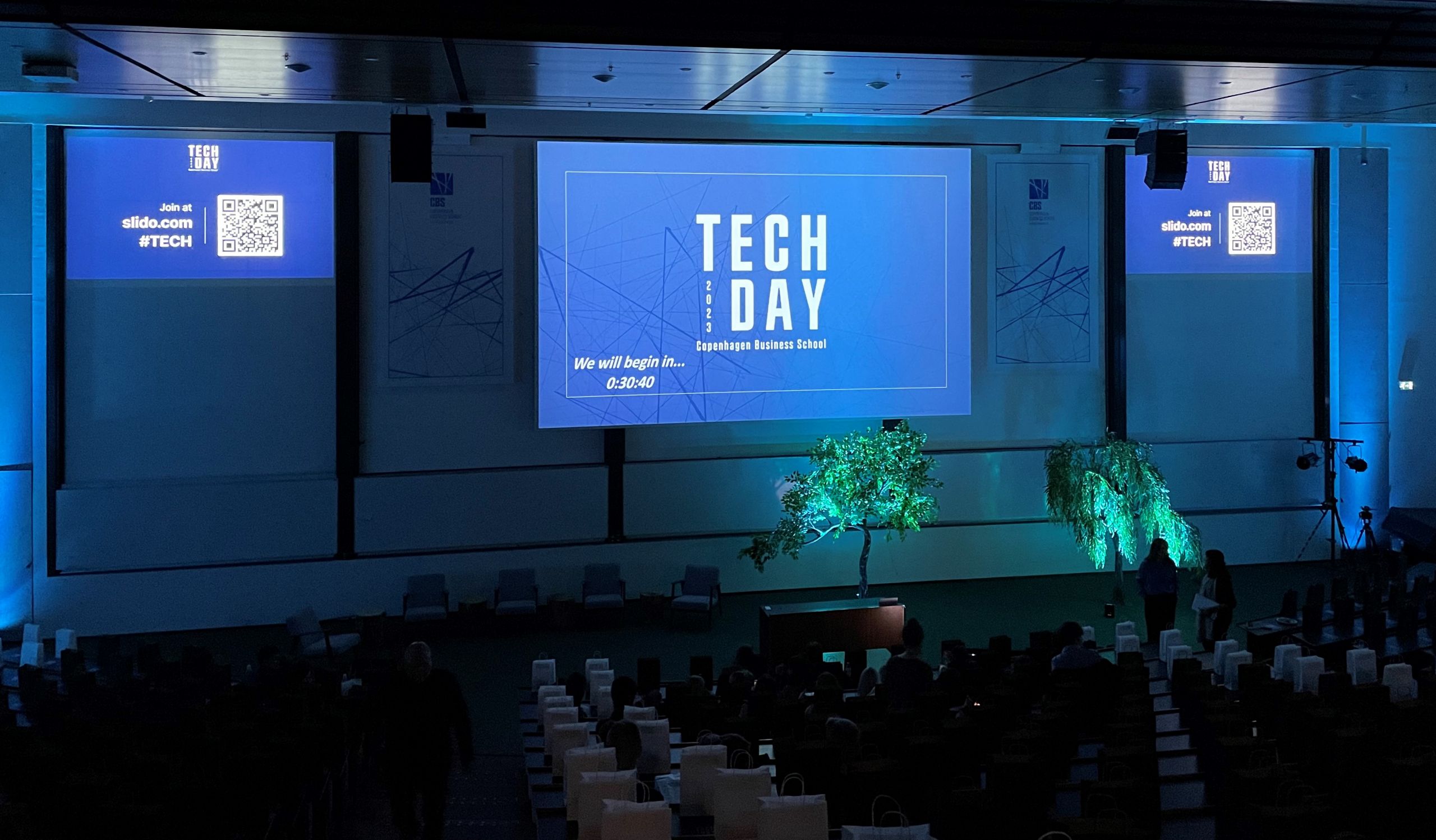
Photo: Maja Golebiowska
Sustainability is everywhere. It applies to everybody, to our clothes, energy, water – and much more. This topic was also the focus of CBS Tech Day, a technology-focused conference organised by CBS students, who agreed that sustainability should be discussed more at their business school.
CBS Tech Day is a new project that launched its first event in 2022. Last year, around 500 students attended the conference with others joining online. This “passion project within Digital Management”, as the co-founder of Tech Day Sam Afzali described it, is meant to show people what the bachelor program in Business Administration and Digital Management is all about.
In 2023, the conference returned with more interesting ideas, and deep discussions about the environment and sustainability. On 23 March, students at Solbjerg Plads listened to talks about the intersection of business, sustainability, and leadership from companies such as Google Denmark, BCG, Ørsted, Equinor, Blue Lobster, and many more.
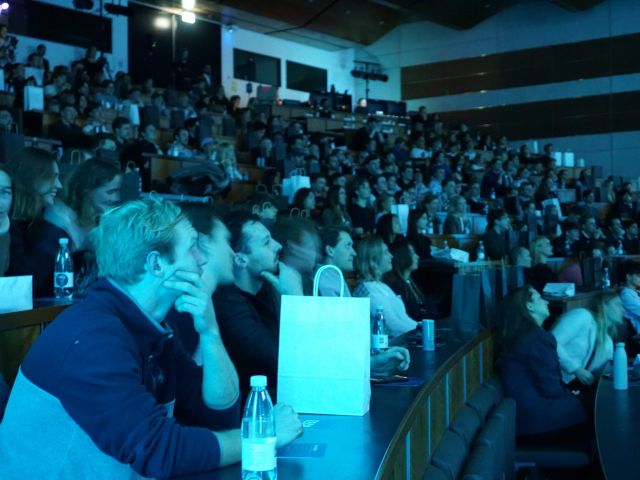
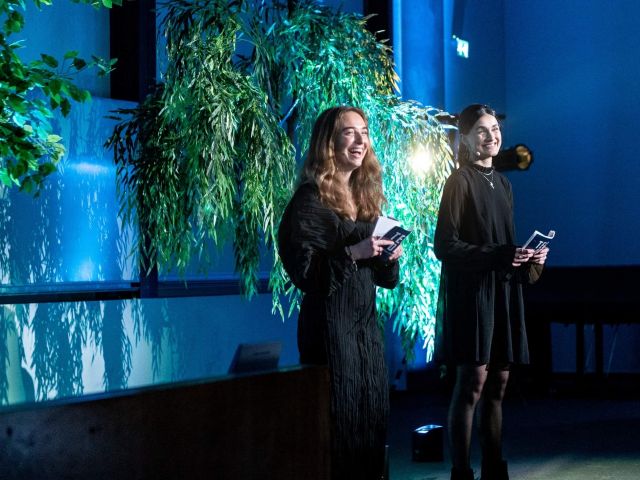
Climate issues dialogue at CBS
The theme of this year’s conference – sustainability – reflected that the students want to learn more about sustainability and acknowledge its relevance for them and their future jobs.
As Thomas Rald Kaspersen, BSc student of Digital Management and co-founder of CBS Tech Day, explains sustainability was the first topic that the organisers thought of. After their first year at CBS, Thomas Rald Kaspersen and Sam Afzali acknowledged that despite climate change taking a toll on our environment they did not have any courses concerning sustainability. “It was a fundamental wish that we want to have a more sustainable focus at CBS, and we want to drive that from what we can do, which is Tech Day,” says Thomas Rald Kaspersen.
For the organisers, it was very clear that we must talk about topics concerning our environment at university. According to Thomas Rald Kaspersen: “Hopefully, CBS is fostering the next generation of leaders and if future leaders prioritize profits over sustainability, then we are never going to make the world better. By doing this (organising CBS Tech Day, ed.) we hope to positively impact the future.”

Sam Afzali (left) and Thomas Rald Kaspersen (right), Photo: Maja Golebiowska
The second panel began with a fresh breeze of hopefulness for the future. “What makes me optimistic I think is the fact that climate issues and sustainability are now a political priority at all levels and in all settings and then it makes me optimistic to see students like you pick the topic of sustainability to be part of Tech Day and part of what you spend your energy on” said Mikkel Flyverbom, professor and academic director at CBS and member of the Danish government’s Data Ethics Council. The panel also included Marianne Dahl from BCG, Jesper Vangkilde from Google Denmark, and Thomas Schaumburg-Müller from PwC. The discussion gave the audience insights into opportunities that technology gives in terms of sustainability as well as the challenges in this industry.
Mikkel Flyverbom emphasised that sustainability should feature in the narrative at business schools such as CBS in order for students to apply their skills to fight climate change and environmental problems.

(From the left) Marianne Dahl, Jesper Vangkilde, Mikkel Flyverbom, Thomas Schaumburg-Müller, Photo: Maja Golebiowska
During the conference, the panellists also talked about solutions to the current climate crisis and the approach to take. “The solution to these problems is not going to be the technology itself,” said Mikkel Flyverbom. In his view, the solution will be found in a much broader and deeper engagement.
The best capability you can develop is the ability to work multidisciplinary and with people that come from other backgrounds than you, because that’s what needed
Marianne Dahl, Partner and Managing Director, BCG
Therefore, to fight the climate crisis, engagement must be invested in many factors, including political engagement, societal change, and shaping students who are sensitive to the future of the planet. “The same skills you have can be put into so many different purposes” Mikkel Flyverbom explained, and therefore students should be aware of how to use their skills. He pointed out that during university education, students are prepared to work in business and gain skills relevant to their future careers. Those skills can be relevant both for working in big companies that generate significant carbon footprints, or they can help us make a difference and work towards sustainability as a part of their job. “Keep this focus on your own values and the things that matter to you as a part of your job” mentioned Mikkel Flyverbom. The panel stressed that CBS has a crucial role in teaching its students to prioritise their own values in their jobs and showing young people how they can contribute to making a good impact on the world.
Getting everyone on the same page
The first panel comprising Hege Skryseth from Equinor, Ida Krabek from Ørsted, Nima Sophia Tisdall from Blue Lobster, and Lasse Hartz-Olsson from Eivee, focused on the challenges that come with working towards sustainability. Nima Sophia Tisdall mentioned “A challenge is getting everyone on the same page and making sure that everyone wins, because the truth is there are going to be losers in the green transition as well. Finding enough compromises to get everyone on the same page, I think, is super important. And by everyone, I mean all humans, all countries but also all parts of the value chain” she said.
We moved from talking about sustainability, the green transition, and climate change as something more niche into really the heart of the conversation, politics and societal development
Ida Krabek, Head of Global Sustainability, Ørsted
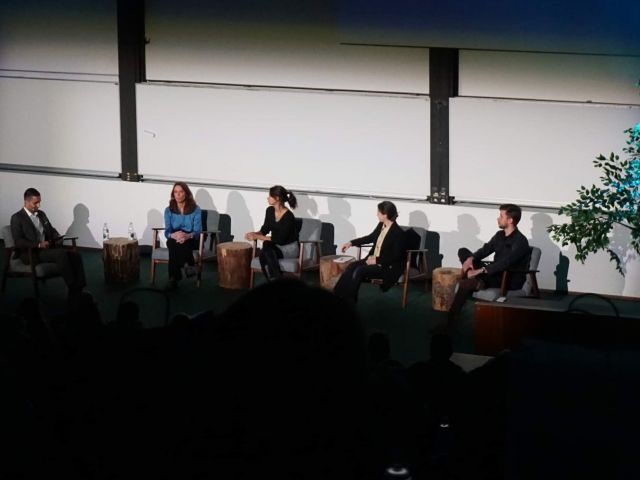
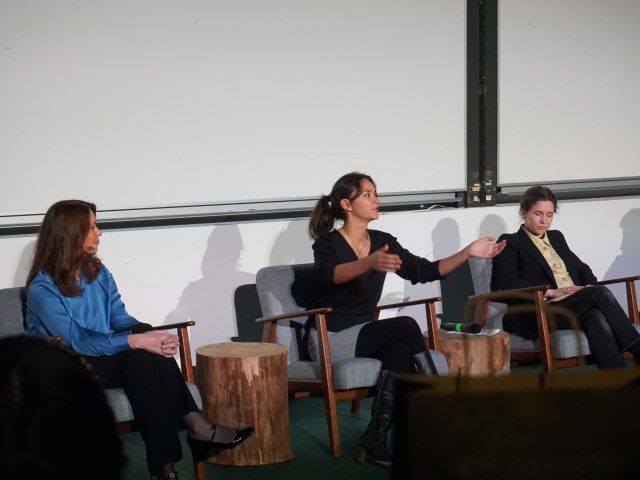
Another challenge – providing transparency – is also a possible solution to environmental problems. As Ida Krabek, Head of Global Sustainability from Ørsted, explained, when it comes to companies, “transparency pushes performance” and getting everyone on the same page requires defining a certain standard of what is and is not sustainable. According to her, necessary steps are being taken, for instance, by the European Union, which introduced EU taxonomy, a classification system for sustainable economic activities. Its goals of pushing companies to be more eco-friendly and comply with the green transition mission can help drive the transition to more sustainable solutions by improving transparency. According to Mikkel Flyverbom, today’s data-driven approaches can contribute to creating this transparency and helping us make wiser decisions.



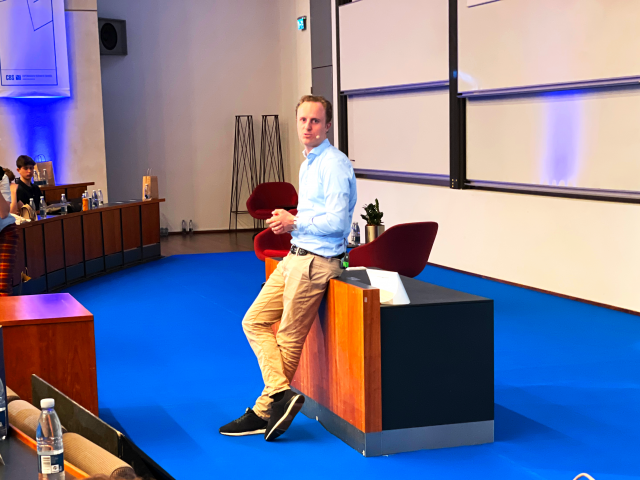






























































































































Comments